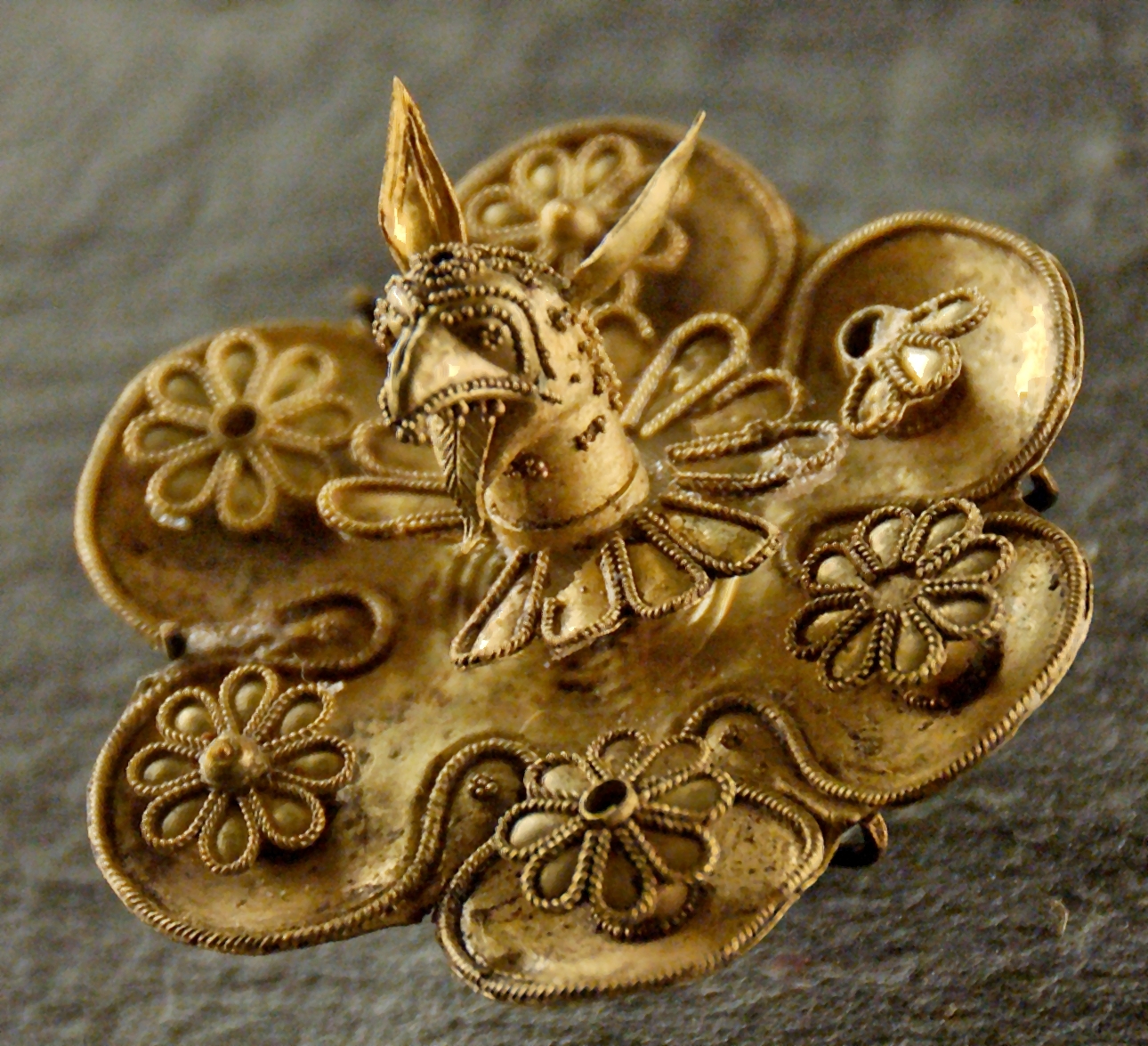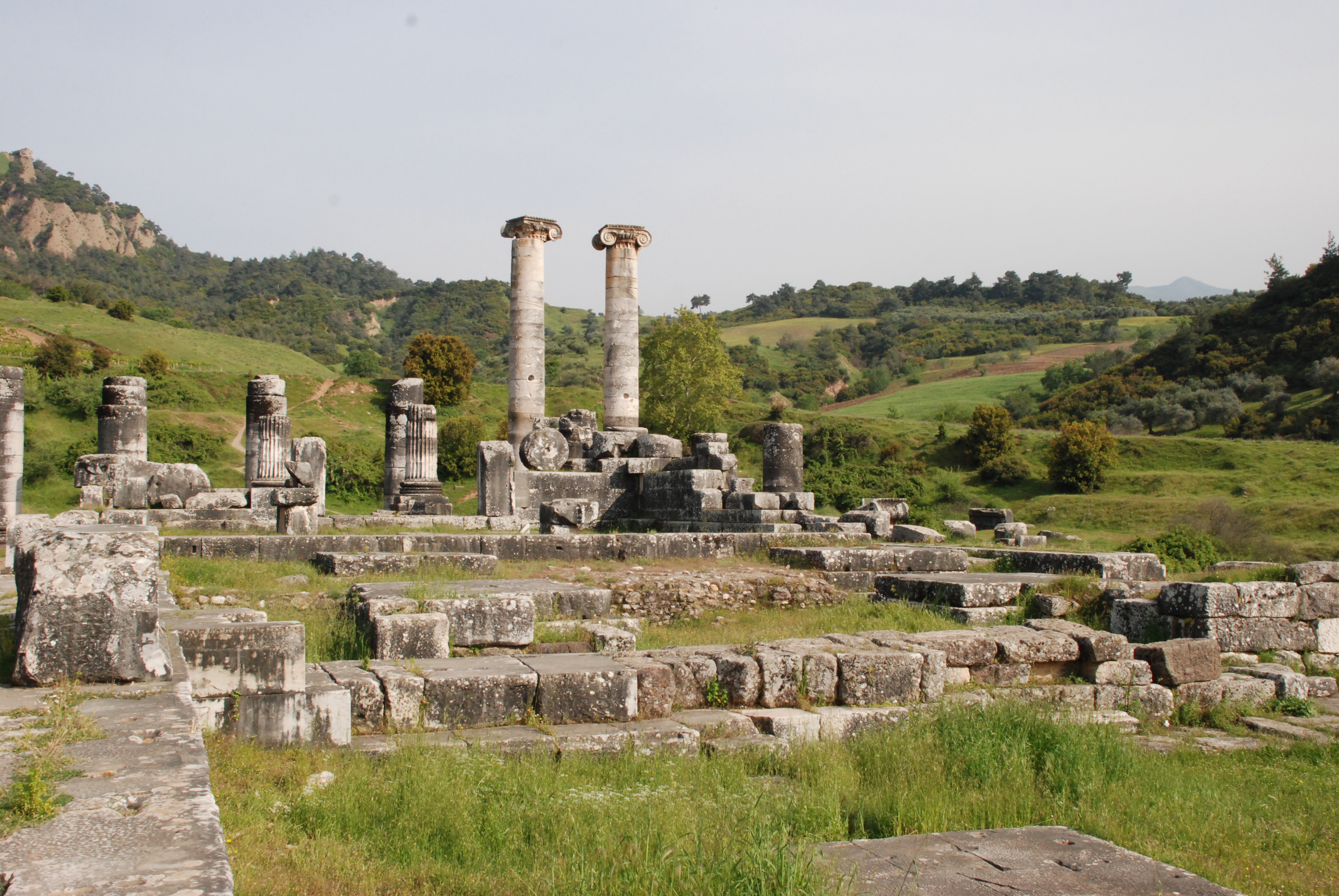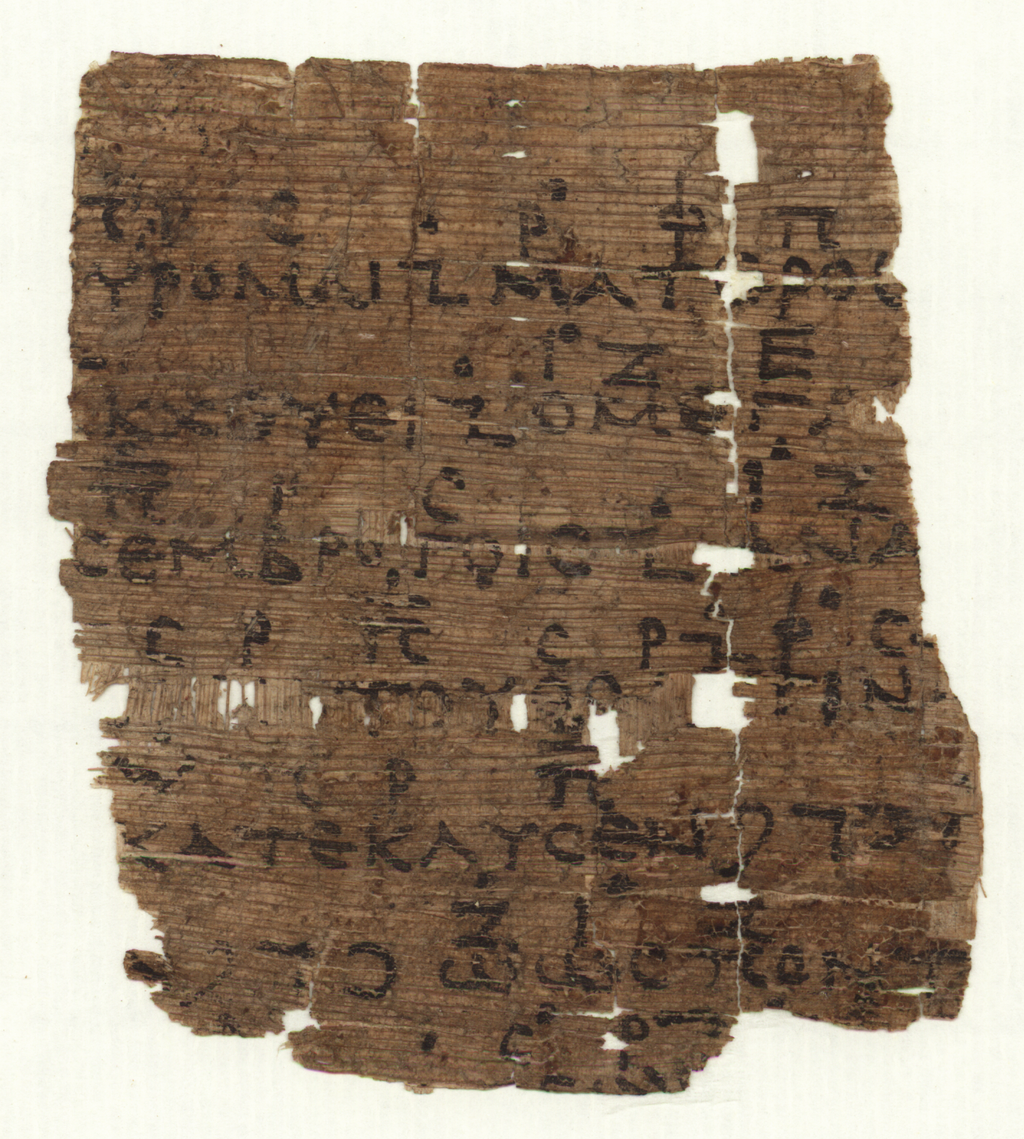|
О ОұОәП„ПүО»ПҢПӮ
Pactolus (), also called Chrysorrhoas (О§ПҒП…ПғОҝПҒПҒПҢОұПӮ), the modern Sart ГҮayДұ , is a river near the Aegean coast of Turkey. The river rises from Mount Tmolus, flows through the ruins of the ancient city of Sardis, and empties into the Gediz River, the ancient Hermus. The Pactolus once contained electrum that was the basis of the economy of the ancient state of Lydia, which used the naturally occurring alloy of gold and silver to mint the first coins under Alyattes of Lydia. Name Pseudo-Plutarch in the De fluviis writes that the river was initially called Chrysorrhoas (О§ПҒП…ПғОҝПҒПҒПҢОұПӮ ) because according to the legend, Chrysorrhoas (the son of Apollo) threw himself into the river. Later it was called Pactolus, from Pactolus, the son of Leucothea, who during a festival of Aphrodite failed to recognize his own sister, Demodice, and ravished her. Upon realizing what he had done, overwhelmed with grief, he threw himself into the river. Because of this the name of th ... [...More Info...] [...Related Items...] OR: [Wikipedia] [Google] [Baidu] |
Electrum
Electrum is a naturally occurring alloy of gold and silver, with trace amounts of copper and other metals. Its color ranges from pale to bright yellow, depending on the proportions of gold and silver. It has been produced artificially and is also known as "Colored gold#Green gold, green gold".Emsley, John (2003Nature's building blocks: an AвҖ“Z guide to the elements Oxford University Press. p. 168. . Electrum was used as early as the third millennium BC in the Old Kingdom of Egypt, sometimes as an exterior coating to the pyramidion, pyramidia atop ancient Egyptian pyramids and obelisks. It was also used in the making of ancient Beaker (archaeology) , drinking vessels. The first known metal coins made were of electrum, dating back to the end of the 7th century or the beginning of the 6th century BC. Etymology The name ''electrum'' is the Latinized form of the Greek language, Greek word бјӨО»ОөОәП„ПҒОҝОҪ (''бё—lektron''), mentioned in the ''Odyssey'', referring to a metallic s ... [...More Info...] [...Related Items...] OR: [Wikipedia] [Google] [Baidu] |
Lydia
Lydia (; ) was an Iron Age Monarchy, kingdom situated in western Anatolia, in modern-day Turkey. Later, it became an important province of the Achaemenid Empire and then the Roman Empire. Its capital was Sardis. At some point before 800 BC, the Lydian people achieved some sort of political cohesion, and existed as an independent kingdom by the 600s BC. At its greatest extent, during the 7th century BC, it covered all of western Anatolia. In 546 BC, it became a Lydia (satrapy), satrapy of the Achaemenid Empire, known as ''Sparda'' in Old Persian. In 133 BC, it became part of the Roman Republic, Roman Asia (Roman province), province of Asia. Lydian coins, made of electrum, are among the oldest in existence, dated to around the 7th century BC. Geography Lydia is generally located east of ancient Ionia in the modern western Turkish provinces of UЕҹak Province, UЕҹak, Manisa Province, Manisa and inland Д°zmir Province, Д°zmir.Rhodes, P.J. ''A History of the Classical Greek ... [...More Info...] [...Related Items...] OR: [Wikipedia] [Google] [Baidu] |
Nonnus
Nonnus of Panopolis (, ''NГіnnos ho PanopolГӯtД“s'', 5th century AD) was the most notable Greek epic poet of the Imperial Roman era. He was a native of Panopolis (Akhmim) in the Egyptian Thebaid and probably lived in the 5th century AD. He is known as the composer of the '' Dionysiaca'', an epic tale of the god Dionysus, and of the ''Metabole'', a paraphrase of the ''Gospel of John''. The epic ''Dionysiaca'' describes the life of Dionysus, his expedition to India, and his triumphant return. It was written in Homeric Greek and in dactylic hexameter, and it consists of 48 books at 20,426 lines. Life There is almost no evidence for the life of Nonnus. It is known that he was a native of Panopolis (Akhmim) in Upper Egypt from his naming in manuscripts and the reference in epigram 9.198 of the '' Palatine Anthology''. Scholars have generally dated him from the end of the 4th to the central years of the 5th century AD. He must have lived after the composition of Claudian's Greek ' ... [...More Info...] [...Related Items...] OR: [Wikipedia] [Google] [Baidu] |
Dionysus
In ancient Greek religion and Greek mythology, myth, Dionysus (; ) is the god of wine-making, orchards and fruit, vegetation, fertility, festivity, insanity, ritual madness, religious ecstasy, and theatre. He was also known as Bacchus ( or ; ) by the Greeks (a name later adopted by the Ancient Rome, Romans) for a frenzy he is said to induce called ''baccheia''. His wine, music, and ecstatic dance were considered to free his followers from self-conscious fear and care, and subvert the oppressive restraints of the powerful. His ''thyrsus'', a fennel-stem sceptre, sometimes wound with ivy and dripping with honey, is both a beneficent wand and a weapon used to destroy those who oppose his Cult of Dionysus, cult and the freedoms he represents. Those who partake of his mysteries are believed to become possessed and empowered by the god himself. His origins are uncertain, and his cults took many forms; some are described by ancient sources as Thrace, Thracian, others as Greek. In O ... [...More Info...] [...Related Items...] OR: [Wikipedia] [Google] [Baidu] |
Dionysiaca
The ''Dionysiaca'' (, ''DionysiakГЎ'') is an ancient Greek epic poem and the principal work of Nonnus. It is an epic in 48 books, the longest surviving poem from Greco-Roman antiquity at 20,426 lines, composed in Homeric dialect and dactylic hexameters, the main subject of which is the life of Dionysus, his expedition to India, and his triumphant return to the west. Composition The poem is thought to have been written in the 5th century AD. The suggestion that it is incomplete misses the significance of the birth of Dionysus' one son (Iacchus) in the final Book 48, quite apart from the fact that 48 is a key number as the number of books in the ''Iliad'' and ''Odyssey'' combined. The older view that Nonnus wrote this poem before conversion to Christianity and the writing of his other long poem, a verse paraphrase of Gospel of John, St John's Gospel, is now discredited, since a host of indications point to the latter being the earlier work and because it misses the eclecticism of l ... [...More Info...] [...Related Items...] OR: [Wikipedia] [Google] [Baidu] |
Orestes (play)
''Orestes'' (, ''OrestД“s'') (408 BCE) is an Ancient Greek play by Euripides that follows the events of Orestes after he had murdered his mother. Background In accordance with the advice of the god Apollo, Orestes has killed his mother Clytemnestra to avenge the death of his father Agamemnon at her hands. Despite Apollo's earlier prophecy, Orestes finds himself tormented by Erinyes or Furies to the blood guilt stemming from his matricide. The only person capable of calming Orestes down from his madness is his sister Electra. To complicate matters further, a leading political faction of Argos wants to put Orestes to death for the murder. OrestesвҖҷ only hope to save his life lies in his uncle Menelaus, who has returned with Helen after spending ten years in Troy and several more years amassing wealth in Egypt. In the chronology of events following Orestes, this play takes place after the events contained in plays such as ''Electra'' by Euripides and Sophocles or '' The Liba ... [...More Info...] [...Related Items...] OR: [Wikipedia] [Google] [Baidu] |
Euripides
Euripides () was a Greek tragedy, tragedian of classical Athens. Along with Aeschylus and Sophocles, he is one of the three ancient Greek tragedians for whom any plays have survived in full. Some ancient scholars attributed ninety-five plays to him, but the ''Suda'' says it was ninety-two at most. Of these, eighteen or nineteen have survived more or less complete (''Rhesus (play), Rhesus'' is suspect). There are many fragments (some substantial) of most of his other plays. More of his plays have survived intact than those of Aeschylus and Sophocles together, partly because his popularity grew as theirs declinedMoses Hadas, ''Ten Plays by Euripides'', Bantam Classic (2006), Introduction, p. ixhe became, in the Hellenistic Age, a cornerstone of ancient literary education, along with Homer, Demosthenes, and Menander.L.P.E.Parker, ''Euripides: Alcestis'', Oxford University Press (2007), Introduction p. lx Euripides is identified with theatrical innovations that have profoundly influ ... [...More Info...] [...Related Items...] OR: [Wikipedia] [Google] [Baidu] |
Scholia
Scholia (: scholium or scholion, from , "comment", "interpretation") are grammatical, critical, or explanatory comments вҖ“ original or copied from prior commentaries вҖ“ which are inserted in the margin of the manuscript of ancient authors, as glosses. One who writes scholia is a scholiast. The earliest attested use of the word dates to the 1st century BC. History Ancient scholia are important sources of information about many aspects of the ancient world, especially ancient literary history. The earliest scholia, usually anonymous, date to the 5th or 4th century BC (such as the ''scholia minora'' to the ''Iliad''). The practice of compiling scholia continued to late Byzantine times, outstanding examples being Archbishop Eustathius' massive commentaries to Homer in the 12th century and the ''scholia recentiora'' of Thomas Magister, Demetrius Triclinius and Manuel Moschopoulos in the 14th. Scholia were altered by successive copyists and owners of the manusc ... [...More Info...] [...Related Items...] OR: [Wikipedia] [Google] [Baidu] |
Lycophron
Lycophron ( ; ; born about 330вҖ“325 BC) was a Hellenistic Greek tragic poet, grammarian, and commentator on comedy, to whom the poem ''Alexandra'' is attributed (perhaps falsely). Life and miscellaneous works He was born at Chalcis in Euboea, and flourished at Alexandria in the time of Ptolemy Philadelphus (285вҖ“247 BC). According to the ''Suda'', the massive tenth century Byzantine Greek historical encyclopaedia, he was the son of Socles, but was adopted by Lycus of Rhegium. It is believed that Lycophron was acquaintances with Greek philosopher Menedemus, who may have influenced some of Lycophron's tragedies and even wrote a satyr drama about the man. At an unknown date Lycophron was intrigued by the literary movement in Alexandria and settled there. He was entrusted by Ptolemy with the task of arranging the comedies in the Library of Alexandria; as the result of his labours he composed a treatise ''On Comedy''. Lycophron is also said to have been a skillful writer of anagra ... [...More Info...] [...Related Items...] OR: [Wikipedia] [Google] [Baidu] |
Tzetzes
John Tzetzes (; , Constantinople вҖ“ 1180, Constantinople) was a Byzantine poet and grammarian who lived at Constantinople in the 12th century. He is known for making significant contributions in preserving much valuable information from ancient Greek literature and scholarship. Of his numerous works, the most important one is the ''Book of Histories'', also known as ('Thousands'). The work is a long poem containing knowledge that is unavailable elsewhere and serves as commentary on Tzetzes's own letters. Two of his other important works are the on the ''Iliad'' and the ''Odyssey'', which are long didactic poems containing interpretations of Homeric theology. Biography Tzetzes described himself as pure Greek on his father's side and part Iberian ( Georgian) on his mother's side. In his works, Tzetzes states that his grandmother was a relative of the Georgian Bagratid princess Maria of Alania who came to Constantinople with her and later became the second wife of the '' s ... [...More Info...] [...Related Items...] OR: [Wikipedia] [Google] [Baidu] |
Tantalus
Tantalus ( ), also called Atys, was a Greek mythological figure, most famous for his punishment in Tartarus: for either revealing many secrets of the gods, for stealing ambrosia from them, or for trying to trick them into eating his son, he was made to stand in a pool of water beneath a fruit tree with low branches, with the fruit ever eluding his grasp, and the water always receding before he could take a drink. This punishment, although the most well-known today, was a more unusual detail in surviving early Greek sources, where variants including a stone suspended above his head are more commonly recorded. The ancient Greeks used the proverb "Tantalean punishment" (: ) in reference to those who have good things but are not permitted to enjoy them. His name and punishment are also the source of the English word ''tantalize'', meaning to torment with the sight of something desired but out of reach; tease by arousing expectations that are repeatedly disappointed. 'The rock of ... [...More Info...] [...Related Items...] OR: [Wikipedia] [Google] [Baidu] |






